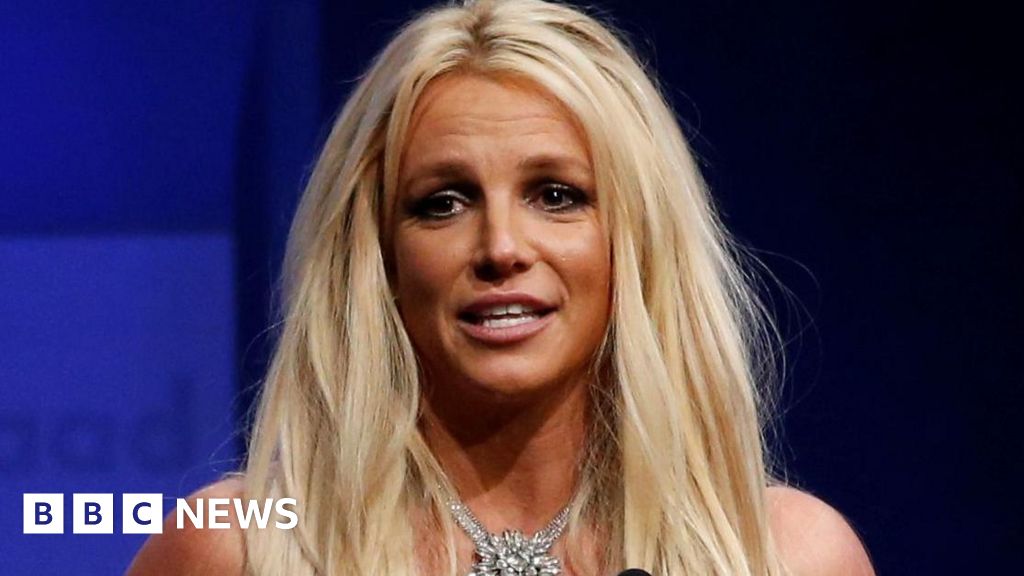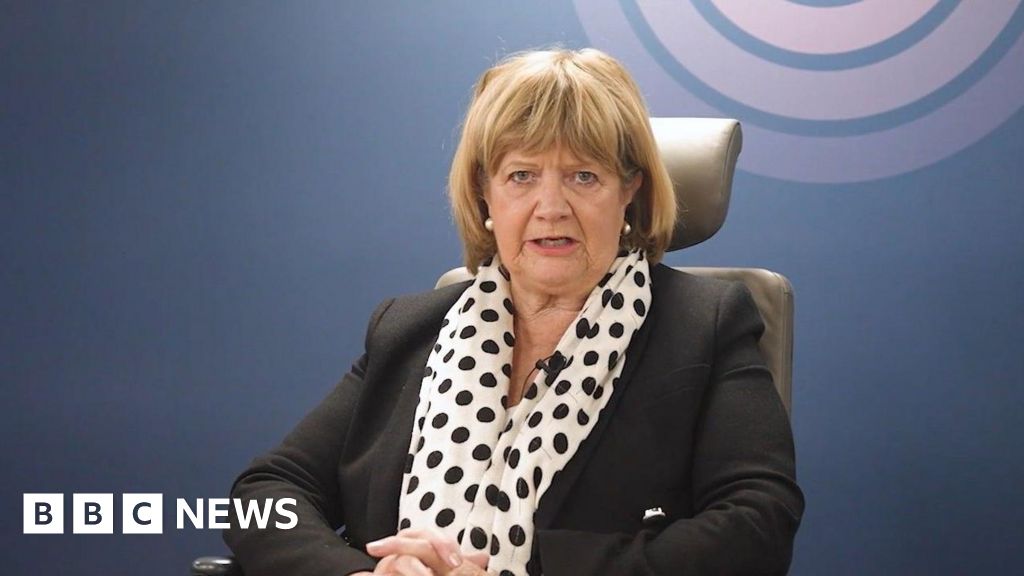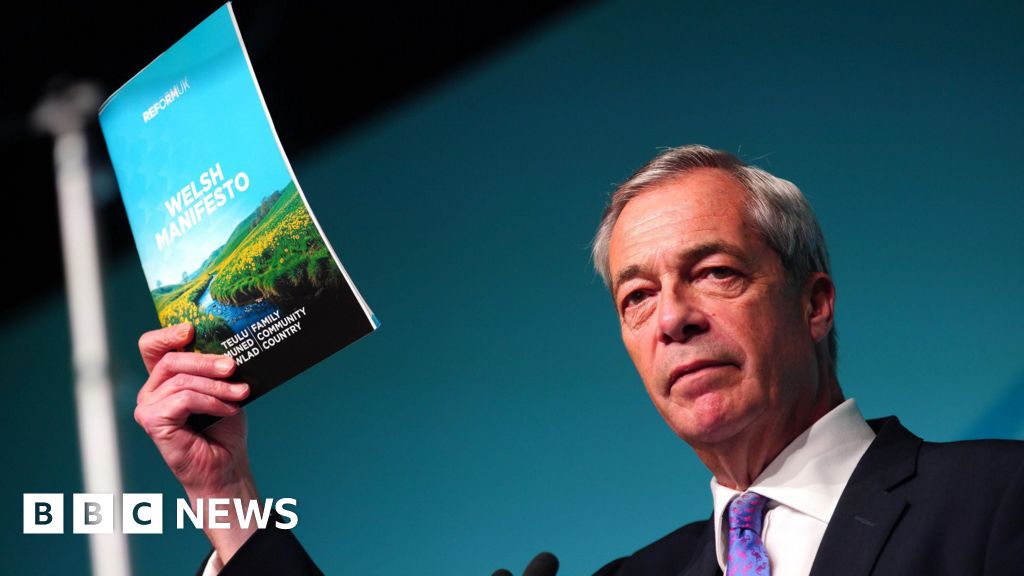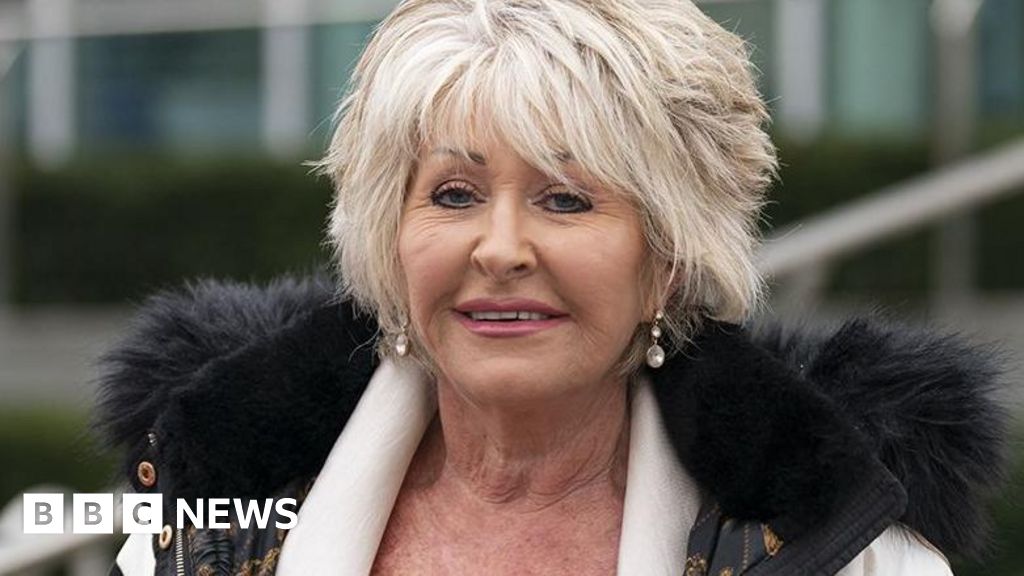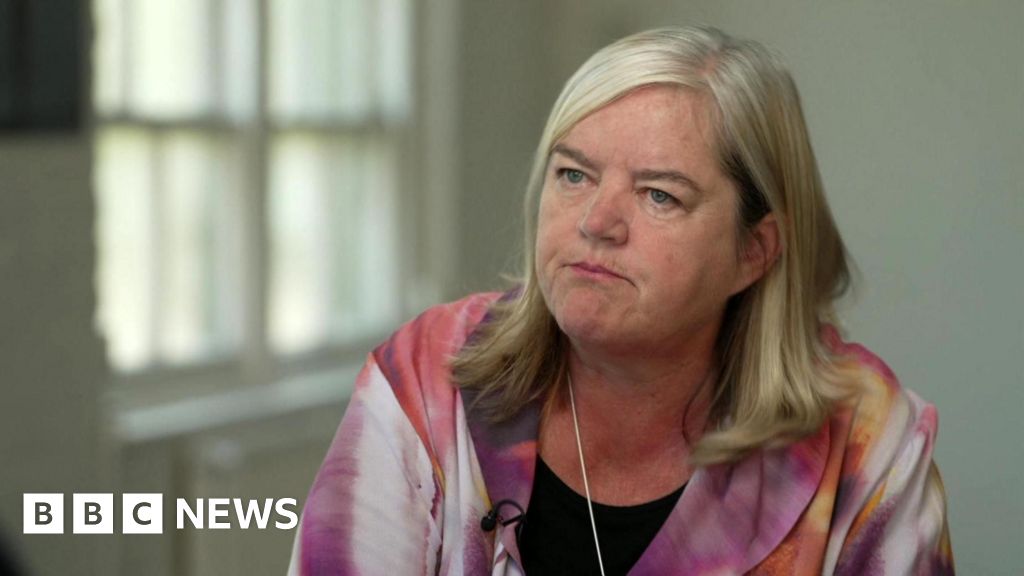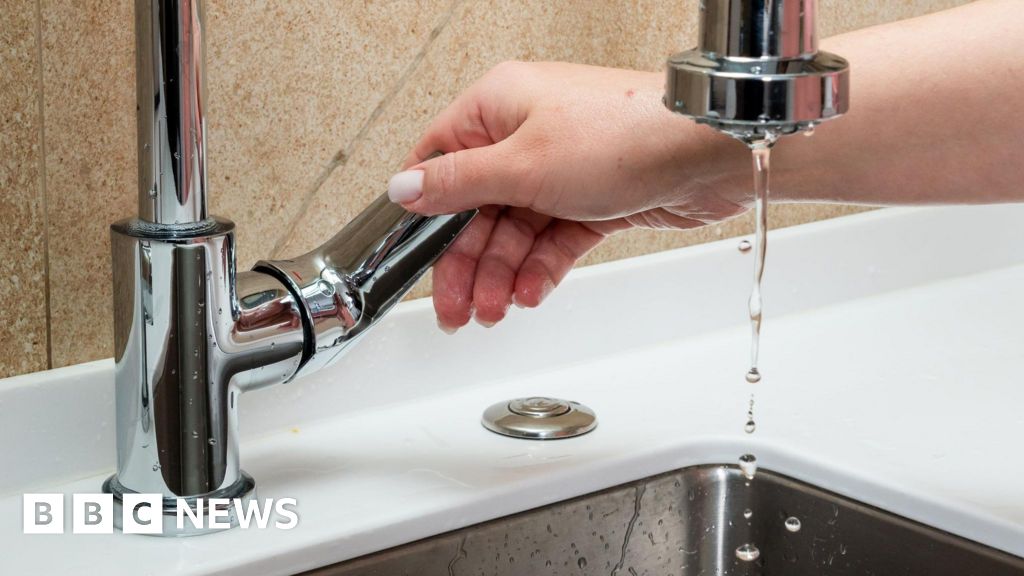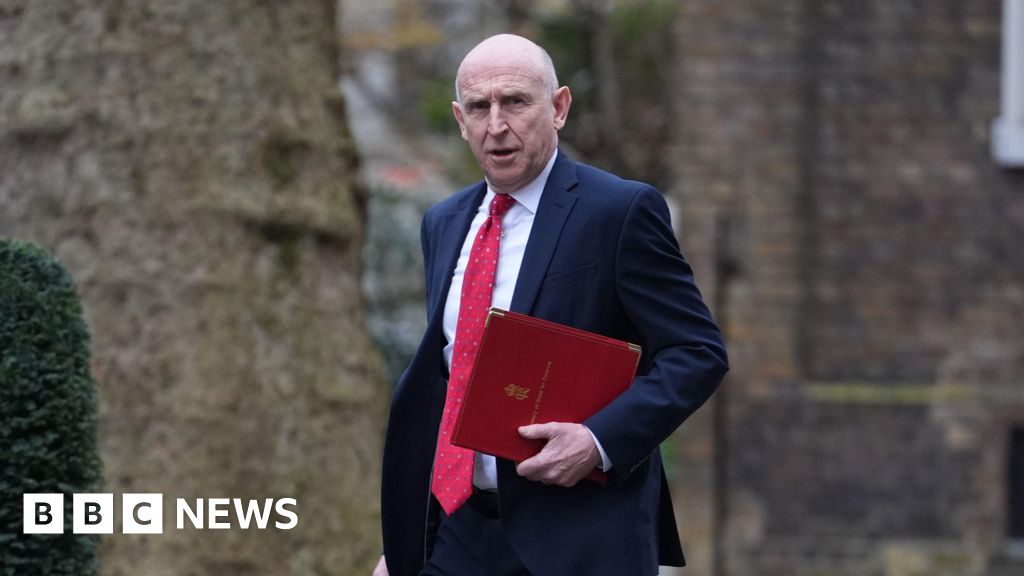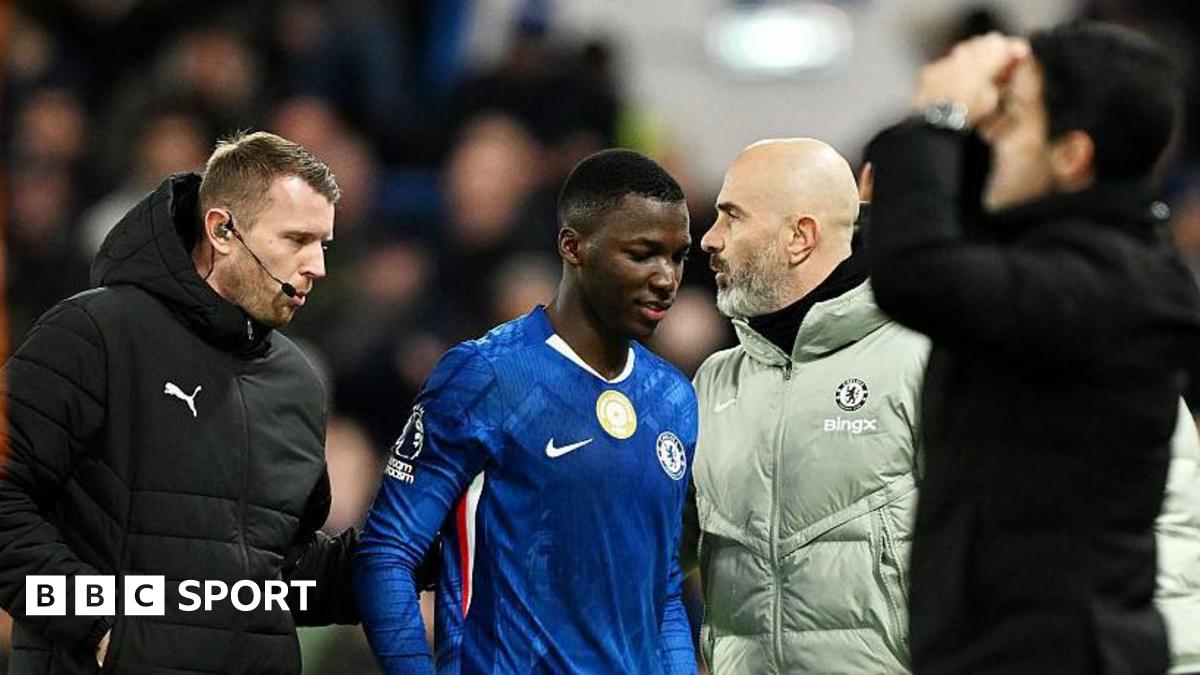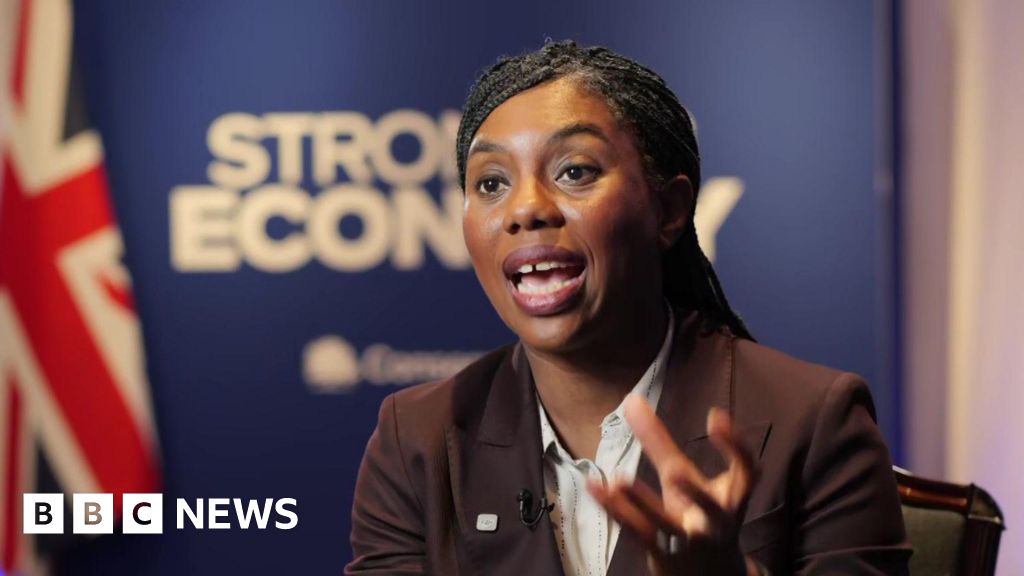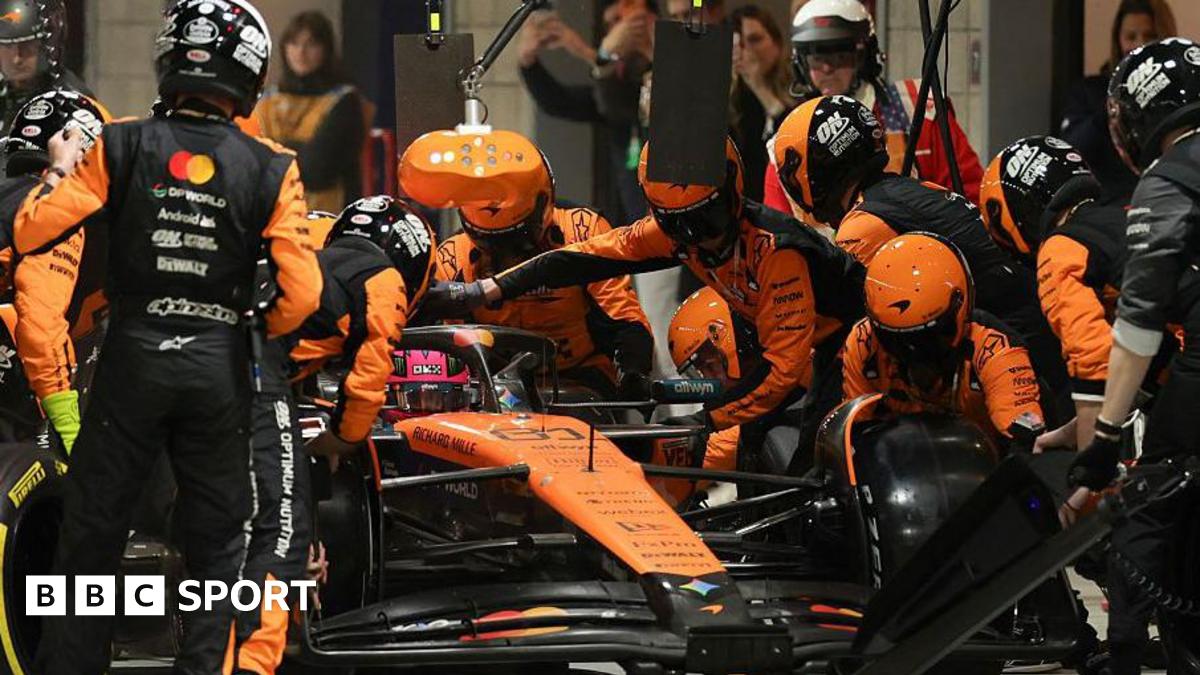Gareth LewisWales political editor


 BBC
BBC
The vote count at the Caerphilly by-election looked like many others. Tables were arranged in the middle of a sports hall, black ballot boxes started to arrive and the counting began.
But camped out at the hall in this ex-coal mining town, known for its cheese, was a throng of journalists and photographers from London – a rare sight for an election to the Welsh Parliament.
Something bigger was afoot: that by-election last month was as much about who was going to lose as it was about who was going to win.
The losers were Labour. They trailed in third place behind Plaid Cymru and Reform UK, winning just 11% of the vote. It marked Labour's first major electoral defeat in Caerphilly for 100 years.
If a similar result is replicated across the whole of Wales at the Senedd election next May - which will switch to a new proportional representation voting system - then the party could face an existential threat.

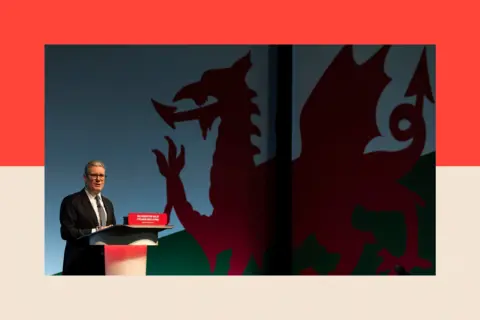 Getty Images
Getty Images
The Caerphilly by-election marked Labour's first major electoral defeat in the seat for 100 years
Labour insiders have already warned that the key elections in May 2026 (which will take place in Scotland and some English councils too) could be a "tipping point" for the prime minister.
It creates yet another headache for the prime minister Sir Keir Starmer who has been dealing not only with speculation about challenges to his leadership, but also questions about the chancellor's tax plans ahead of next week's Budget.
When it comes to the question of Wales specifically, the political commentator Richard Wyn Jones has described the potential for Labour losing power next May as "seismic".
It has been the biggest party in Wales at every UK parliamentary election since 1922, and the largest in the Senedd at every election since 1999. This would be the sort of change that the vast majority of people will not have seen – or possibly expected – in their lifetimes.
And the ramifications for the party and the prime minister are clear. Not only has he had to deal with a crisis-made-in-Downing Street about his own leadership, but there are also potential threats to his future next May.
As one source told me: "Keir Starmer would be the first Labour leader to lose Wales.
"It will not matter after that who blames who for what - history will remember we lost Wales."
'Internecine warfare' within Welsh Labour
In Cardiff Bay, Labour has been in power since the Senedd was established 26 years ago.
As next May's election looms, there are serious questions about its record, not least on the NHS, which accounts for 55% of the Welsh government's £27bn budget.
Cutting waiting times is First Minister Eluned Morgan's number one priority and, over the last year, the trend for overall waiting lists is just about downwards. But lists are still high, despite £50m of additional funding last autumn and £120m in June.

 Getty Images
Getty Images
Plaid Cymru leader Rhun ap Iorwerth with a jubilant Lindsay Whittle following his victory in the Caerphilly by-election
The Welsh government's current target is to eliminate waiting times of more than two years by next March, and for the overall waiting list to be cut by 200,000 between April 2025 and March 2026.
Latest figures show that more than 8,000 patients are still waiting more than two years, compared with just 168 in England. The overall list is still hovering near where it was in April at just under 800,000.
Opposition parties may be hoping that voters have already made up their minds on the Labour record, however.
The Welsh party was in the headlines for the wrong reasons last year, during Vaughan Gething's brief reign as first minister, following a row over donations to his leadership campaign.
He maintained that all current rules were followed and said he regretted the "anxieties" caused by the donations.

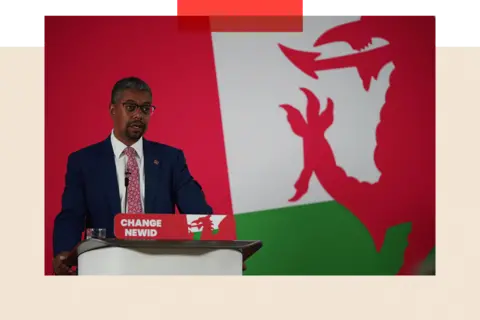 Getty Images
Getty Images
Vaughan Gething had a brief reign as first minister in 2024
It was an ugly period for the Labour group in the Senedd, which split acrimoniously over the matter.
According to Cathy Owens, a political consultant and former Labour special adviser, the "internecine warfare" kick-started the party's drop in the polls in Wales.
Embracing the 'hanging baskets' theory
Welsh Labour has not been immune to the party's decline in popularity across the rest of the country either.
At the start of the year, Labour, the Conservatives and Reform UK were all averaging about 25% across Britain. In May that all changed: for more than five months, Reform's average polling has hovered around 30%, while the two other parties have now fallen below 20%.
Cathy Owens believes the party needs to embrace the "hanging baskets" theory of politics - the idea that voter attitudes can be boosted by highly visible changes (hence flower-filled baskets).
"Voters want to see the good stuff immediately, and they're not," she says. "All people see are negative headlines and there is no exclusivity for Wales about this. Welsh voters are reading and responding in the same way as [others]."

 Getty Images
Getty Images
Cathy Owens, a former Labour special adviser, argues the party should embrace the "hanging baskets" theory of politics
Then there is the question of whether Labour governments in Westminster and the Senedd are working well for Wales.
There have been benefits, such as £1.7bn of extra funding announced by Rachel Reeves in last year's Budget, along with funding for coal tip safety and investment in Wales's railways. But the UK party has not delivered on a long list of Welsh Labour demands.
For example, Welsh Labour wants the Barnett formula reformed (the system that awards Treasury cash to devolved nations), plus they want devolution of the Crown Estate so that profits from Crown-held lands inside Wales go to the Welsh government, as well as a loosening of restrictions on the Welsh government's ability to borrow.
One Welsh Labour source argues that Eluned Morgan needs to be firmer on these demands. "We all hate it when the first minister says she is going to pester Keir Starmer and ask him for something.
"It's as if she is asking a friend to lend her a tenner to buy a round [in the pub]."

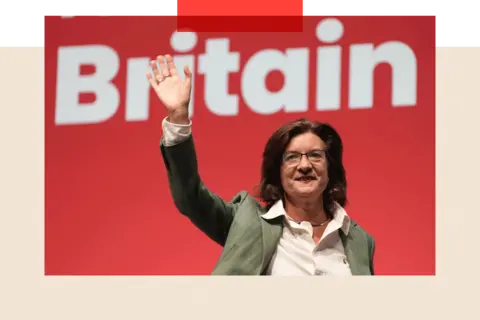 PA Wire
PA Wire
Eluned Morgan has served as First Minister of Wales and leader of Welsh Labour since 2024
But others have more sympathy given the context.
"If anyone thought that a UK Labour government could make up for 14 years of austerity on things like transport in such a short space of time," says Ms Owens, "then that was not going to happen."
'Cheesed off' voters turn to Plaid
As Labour struggles, two alternatives have emerged. Plaid Cymru has been trying to portray itself more as a government-in-waiting - and achieved success in the Caerphilly by-election.
They promise to build more surgical hubs than Labour to help bring down NHS waiting lists; to pilot a scheme to give extra money to Wales's poorest parents; to invest £800m to expand Wales's childcare options; and to introduce favourable business rates for small Welsh retailers.
Its ultimate goal remains independence but its current leader, Rhun ap Iorwerth, has taken a fresh approach, acknowledging that the idea of Wales going it alone frightens some voters.
The moment Plaid Cymru took Caerphilly, breaking Labour's grip on a seat held in Westminster since the 1920s and in the Senedd since its creation
At its conference last month, the party promised its plan for independence would not come until the second term of a Plaid-led Welsh government.
One Welsh Labour source has their own take on this. "No one in Wales thinks Wales will actually become independent," the source says.
"People are voting for Plaid Cymru because they're cheesed off with Labour and they now have an alternative."
Reform UK, meanwhile, is a more curious case from a Welsh perspective: it came second under the winner takes it all first-past-the-post vote in the Caerphilly by-election, getting 36% of the vote.
Yet it does not have a Welsh leader, nor a specific set of Welsh policies.

 PA Wire
PA Wire
At its conference last month, Plaid said any independence plan would not be pursued until a second term of a Plaid-led Welsh government
The party has, however, called for the Welsh government to scrap its Nation of Sanctuary programme, which is designed to help asylum seekers and refugees. (The programme has cost £55m since 2019, less than 0.5% of Welsh government spending, with £45m of the funding allocated to Ukrainians.)
The party also says it would scrap the two-child benefit cap, which affects about 21,000 families in Wales, according to government statistics published last year.
As for the Welsh Conservatives, they concede in both public and private that next May will be tough, with the party's economy and rural affairs spokesperson, Samuel Kurtz, telling the BBC in October that the Tories were still "paying a penance" for their time in national government.
Wales's 'presidential-style' operation
In the early hours after the Caerphilly defeat, the former first minister, Lord Carwyn Jones, urged the party not to descend into a "war of words" between Westminster and Cardiff Bay.
The plea is not being completely heeded. Some accuse the national party of complacency.
"Labour people in Wales have been trying to send a message up the M4," argues one senior Labour source. "The UK government needs to move faster and further on its commitments [to Wales] and take on board how big a risk next May is."
One source described the prime minister as a "top-down ivory tower leader" – a common refrain from some Labour politicians who think Sir Keir lacks a proper grasp.
Others argue the local campaign was chaotic and lacked focus – especially on social media – until Westminster figures got involved.
"Welsh Labour has not got the capacity, not got the right people in there," says one Westminster source. "Caerphilly was absolute carnage."

 PA Wire
PA Wire
Ministers point to new investment, including £1.7bn announced by Rachel Reeves in last year's budget
Labour says that next May's campaign will be led by Eluned Morgan. "Anything else will fail," one Member of the Senedd (MS) warned.
Some assembly members have been concerned about too much of a "London" influence creeping into the campaign ahead of next year's election.
The deputy First Minister, Huw Irranca-Davies, told me that the campaign would be "led by Eluned Morgan and Welsh Labour", but added, "We will definitely draw in all the talents in order to help as well."
The Treasury Minister and Swansea West MP Torsten Bell will act as a link between Cardiff and Westminster.
One source said next May would be a "presidential-style" operation.
'Baked-in defeat' vs turning the tide
So can Labour avoid defeat in the Senedd?
Plenty of Labour politicians have said in public that the party can turn things around - although the national party may well find itself distracted by its own leadership speculation.
Last week, allies of the prime minister briefed journalists about an imminent leadership threat from the English Health Secretary Wes Streeting.
Streeting dismissed the claims as "nonsense". Yet the turmoil certainly won't have helped to focus minds in London on the party's problem in Wales.
Many in Welsh Labour are hoping for big investment announcements from their colleagues at Westminster, such as the new nuclear power station on Anglesey announced recently.
The question is, will it be enough?
Alun Davies, who is assembly member for Blaenau Gwent, published a letter he sent to local party members, recalling his experiences recently on the doorstep.
"It can't get any worse," he said voters had told him. "And you lot need a kick."
Another source said that their biggest concern was a "baked-in defeat" and "not enough time to turn it round".
"If we could make really significant inroads in waiting times, and get significant funding in the Budget, it might at least help us build a narrative that two Labour governments working together is better for Wales," the source added.
But the one word slogan that propelled Labour to a landslide win at last year's general election could come back to haunt the party in Wales: change.
Labour's opponents in Wales sense that voters may just be ready for it after more than a century.


BBC InDepth is the home on the website and app for the best analysis, with fresh perspectives that challenge assumptions and deep reporting on the biggest issues of the day. You can now sign up for notifications that will alert you whenever an InDepth story is published - click here to find out how.

 3 months ago
84
3 months ago
84
